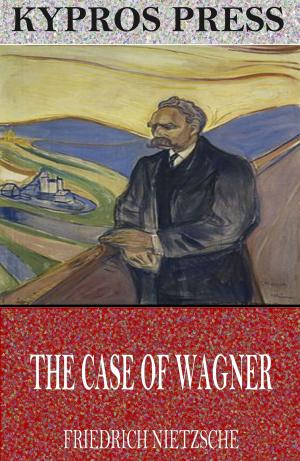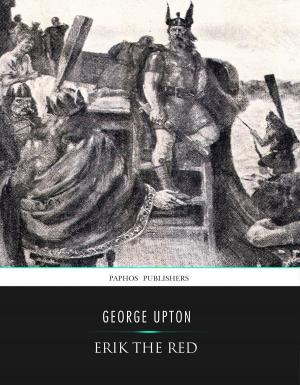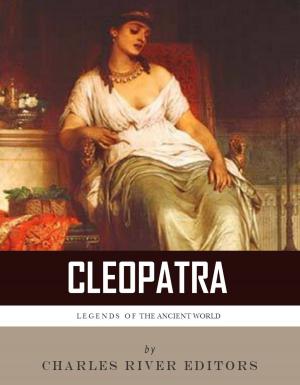Conquering Asia: The Lives and Legacies of Alexander the Great and Genghis Khan
Nonfiction, History, Ancient History, Greece, Civilization, Biography & Memoir, Historical| Author: | Charles River Editors | ISBN: | 9781475321128 |
| Publisher: | Charles River Editors | Publication: | January 12, 2013 |
| Imprint: | Language: | English |
| Author: | Charles River Editors |
| ISBN: | 9781475321128 |
| Publisher: | Charles River Editors |
| Publication: | January 12, 2013 |
| Imprint: | |
| Language: | English |
*Includes paintings and busts depicting important people, places, and events. *Discusses both common legends and little known facts about the lives of Alexander and Genghis Khan.*Includes a Bibliography for further reading.*Includes a Table of Contents.There is nothing impossible to him that will but try AlexanderConquering the world from horseback is easy. It is dismounting and governing that is hard. Genghis KhanOver the last 2,000 years, ambitious men have dreamed of forging vast empires and attaining eternal glory in battle, but of all the conquerors who took steps toward such dreams, none were ever as successful as antiquitys first great conqueror. Leaders of the 20th century hoped to rival Napoleons accomplishments, while Napoleon aimed to emulate the accomplishments of Julius Caesar. But Caesar himself found inspiration in Alexander the Great (356-323 B.C.), the Macedonian King who managed to stretch an empire from Greece to the Himalayas in Asia at just 30 years old. It took less than 15 years for Alexander to conquer much of the known world. As fate would have it, Alexander died of still unknown causes at the height of his conquests, when he was still in his early 30s. Although his empire was quickly divided, his legacy only grew, and Alexander became the stuff of legends even in his own time. Alexander was responsible for establishing 20 cities in his name across the world, most notably Alexandria in Egypt, and he was directly responsible for spreading Ancient Greek culture as far east as modern day India and other parts of Asia. For the ancient world, Alexander became the emblem of military greatness and accomplishment; it was reported that many of Romes greatest leaders, including Pompey the Great, Augustus, and Caesar himself all visited Alexanders tomb in Alexandria, a mecca of sorts for antiquitys other leaders. In a world fascinated by men like Alexander the Great and Julius Caesar, Genghis Khan is one of historys greatest and most famous conquerors. No man, before or since, has ever started with so little and gone on to achieve so much. From a noble family but raised in poverty that drove him to the brink of starvation, Genghis Khan rose to control the second-largest empire the world has ever known (the largest being, arguably, the British Empire of the 18th and 19th centuries), and easily the largest empire conquered by a single man. And while many empires disintegrate upon the death of an emperor, like Alexander the Greats, Genghis Khans empire endured and was actually enlarged by his successors, who went on to establish dynasties that in some cases lasted for centuries.Though history is usually written by the victors, the lack of a particularly strong writing tradition from the Mongols ensured that history was largely written by those who Genghis Khan vanquished. Because of this, Genghis Khans portrayal in the West and the Middle East has been extraordinarily (and in many ways unfairly) negative for centuries, at least until recent revisions to the historical record. He was far more complex than the mere brute that his negative portrayals indicate, and though there is a slew of graves and depopulated regions to testify to the fact that he was not a gentle man, it would be simplistic and wrong to describe him merely as a madman bent on destruction for destructions sake. Conquering Asia chronicles the amazing lives of the two famous conquerors, examining their conquests and discussing the legends and myths surrounding them. Along with pictures of important people, places, and events, you will learn about Alexander the Great and Genghis Khan like you never have before.
*Includes paintings and busts depicting important people, places, and events. *Discusses both common legends and little known facts about the lives of Alexander and Genghis Khan.*Includes a Bibliography for further reading.*Includes a Table of Contents.There is nothing impossible to him that will but try AlexanderConquering the world from horseback is easy. It is dismounting and governing that is hard. Genghis KhanOver the last 2,000 years, ambitious men have dreamed of forging vast empires and attaining eternal glory in battle, but of all the conquerors who took steps toward such dreams, none were ever as successful as antiquitys first great conqueror. Leaders of the 20th century hoped to rival Napoleons accomplishments, while Napoleon aimed to emulate the accomplishments of Julius Caesar. But Caesar himself found inspiration in Alexander the Great (356-323 B.C.), the Macedonian King who managed to stretch an empire from Greece to the Himalayas in Asia at just 30 years old. It took less than 15 years for Alexander to conquer much of the known world. As fate would have it, Alexander died of still unknown causes at the height of his conquests, when he was still in his early 30s. Although his empire was quickly divided, his legacy only grew, and Alexander became the stuff of legends even in his own time. Alexander was responsible for establishing 20 cities in his name across the world, most notably Alexandria in Egypt, and he was directly responsible for spreading Ancient Greek culture as far east as modern day India and other parts of Asia. For the ancient world, Alexander became the emblem of military greatness and accomplishment; it was reported that many of Romes greatest leaders, including Pompey the Great, Augustus, and Caesar himself all visited Alexanders tomb in Alexandria, a mecca of sorts for antiquitys other leaders. In a world fascinated by men like Alexander the Great and Julius Caesar, Genghis Khan is one of historys greatest and most famous conquerors. No man, before or since, has ever started with so little and gone on to achieve so much. From a noble family but raised in poverty that drove him to the brink of starvation, Genghis Khan rose to control the second-largest empire the world has ever known (the largest being, arguably, the British Empire of the 18th and 19th centuries), and easily the largest empire conquered by a single man. And while many empires disintegrate upon the death of an emperor, like Alexander the Greats, Genghis Khans empire endured and was actually enlarged by his successors, who went on to establish dynasties that in some cases lasted for centuries.Though history is usually written by the victors, the lack of a particularly strong writing tradition from the Mongols ensured that history was largely written by those who Genghis Khan vanquished. Because of this, Genghis Khans portrayal in the West and the Middle East has been extraordinarily (and in many ways unfairly) negative for centuries, at least until recent revisions to the historical record. He was far more complex than the mere brute that his negative portrayals indicate, and though there is a slew of graves and depopulated regions to testify to the fact that he was not a gentle man, it would be simplistic and wrong to describe him merely as a madman bent on destruction for destructions sake. Conquering Asia chronicles the amazing lives of the two famous conquerors, examining their conquests and discussing the legends and myths surrounding them. Along with pictures of important people, places, and events, you will learn about Alexander the Great and Genghis Khan like you never have before.















